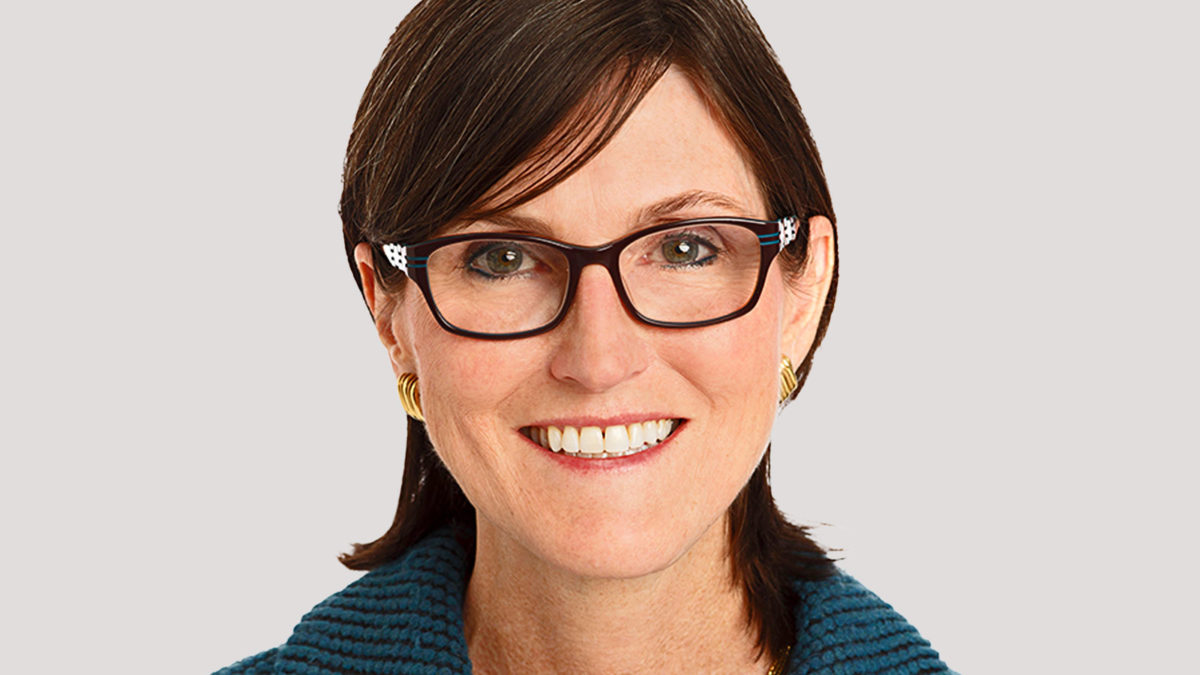Why Cathie Wood believes in the ‘super-crazies’
Implausible doesn’t mean impossible. But it remains to be seen whether the “creative destruction” that ARK Invest is banking on can trump the possibility that we’ve been in a bubble all along.
They’re what legendary investor/prophet of doom Jeremy Grantham calls “super-crazies” – the wildly overvalued assets that start to appear shortly before the bubble pops. In the Tech Wreck it was Pet.Com; today, he thinks it’s Tesla and special purpose acquisition companies. But even the super-crazies have their true believers, and first among their number is Cathie Wood, controversial CEO of thematic active ETF provider ARK Invest.
“Electric vehicles are better performing vehicles; they have fewer parts, and so much less servicing required; no gasoline trip every week – I haven’t gone to the gas station since September of 2018 – and the total cost of ownership today, when you incorporate everything including insurance as well, is already lower,” Wood told the Morningstar Investment Conference on Thursday (September 23).
Of course, Wood isn’t talking about just electric vehicles – she’s talking about Tesla. Wood made headlines in 2018 for predicting its stock would reach $4000 in five years, an 1100 per cent increase. It reached that price (on a split-adjusted basis) two years early, in January 2021.
The reason Wood believes Tesla will be able to beat incumbent auto manufacturers – who many believe are better placed to produce electric vehicles – are four-fold: Battery cost (Tesla’s will be lower); Tesla’s proprietary artificial intelligence, which allows for autonomous driving; the amount of travel data that artificial intelligence collects; and “over the air” software updates to improve performance.
“We believe those four barriers to entry have put Tesla ahead and that the distance is actually increasing,” Wood said, adding that the only threats to that outlook emanate from China, which is expected to be the world’s largest market for electric vehicles.
Wood is herself an idiosyncratic figure. ARK is named after the Biblical Ark of the Covenant, and she believes that starting it was “fulfilling the will of God”. She’d hardly be the first visionary investor/entrepreneur with peculiarities – see Warren Buffet’s predilection for high-fructose corn syrup, or Elon Musk’s apparent obsession with dogecoin – but as Rob Arnott, chairman of Research Affiliates, pointed out: disruptors get disrupted too.

“Palm was spun-off from 3COM back in 2000 at an initial value that was more than 3COM was valued at before the spin-off. Within a day or two it was worth more than General Motors,” Arnott said. “Palm was disrupted; Blackberry came along with a better product. Blackberry was disrupted; Apple came along with a better product.”
“And so what we find, again and again, is that while disruptors are massively important to the economy, you have to look at a) how disruptive are they? B) how much of a premium are you paying for that? And c) are they vulnerable to being disrupted themselves?”
For Arnott, it all comes back to bubbles.
“How many of the ten largest market cap tech stocks in 2000 outperformed the market in the next ten years? Zero. How many outperformed over the next 20 years? One. Microsoft,” Arnott said.
“Amazon and Apple weren’t anywhere near the top ten. They were bubbling up from underneath, and in the case of Apple, it was perceived to be poised on the brink of ruin. And so what you find is that when you have bubbles – and they can appear anywhere – they tend to burst… if you’re using a discounted cash flow model or some other valuation model, you’d have to use implausible assumptions to justify today’s price.”
Research Affiliates did an exceedingly generous valuation of Tesla – assuming 50 per cent growth for ten years and profitability matching the best of any auto manufacturer (Wood disputes that Tesla is an auto manufacturer) – and came up with a fair value of US$430. As of writing, it sits at US$751.
“I view 50 per cent growth as implausible; Cathie does not. I view Tesla as a bubble; Cathie does not,” Arnott said. “But two things are interesting about bubbles: they can go much further and last much longer than any skeptic would expect. So be very careful about short-selling bubbles… the second observation about bubbles is that implausible growth assumptions don’t mean impossible.”
But there’s no market bubble in Wood’s world view. For Wood, the market is simply waking up to the “creative destruction” about to be unleashed by massive technological advancement in everything from artificial intelligence to transport infrastructure (Arnott essentially agrees about those forces, but questions how much isn’t already reflected in share prices).
For Wood, there’s probably a tougher question to answer, and that’s about the long-term performance of the active ETFs that have made her a headline-grabbing figure in global financial markets. As Arnott noted, there have been 108 mutual funds and ETFs that have gone up 100 per cent over the last 30 years – and five of them have been Wood’s. It’s an impressive performance. But 80 per cent of them were down the following three years by an average of 53 per cent.
“My big question would be, what’s the sell discipline that can protect those gains?” Arnott said. “What’s the sell discipline that can rotate you into undiscovered disruptors where the market is unaware of what they’re doing?”










